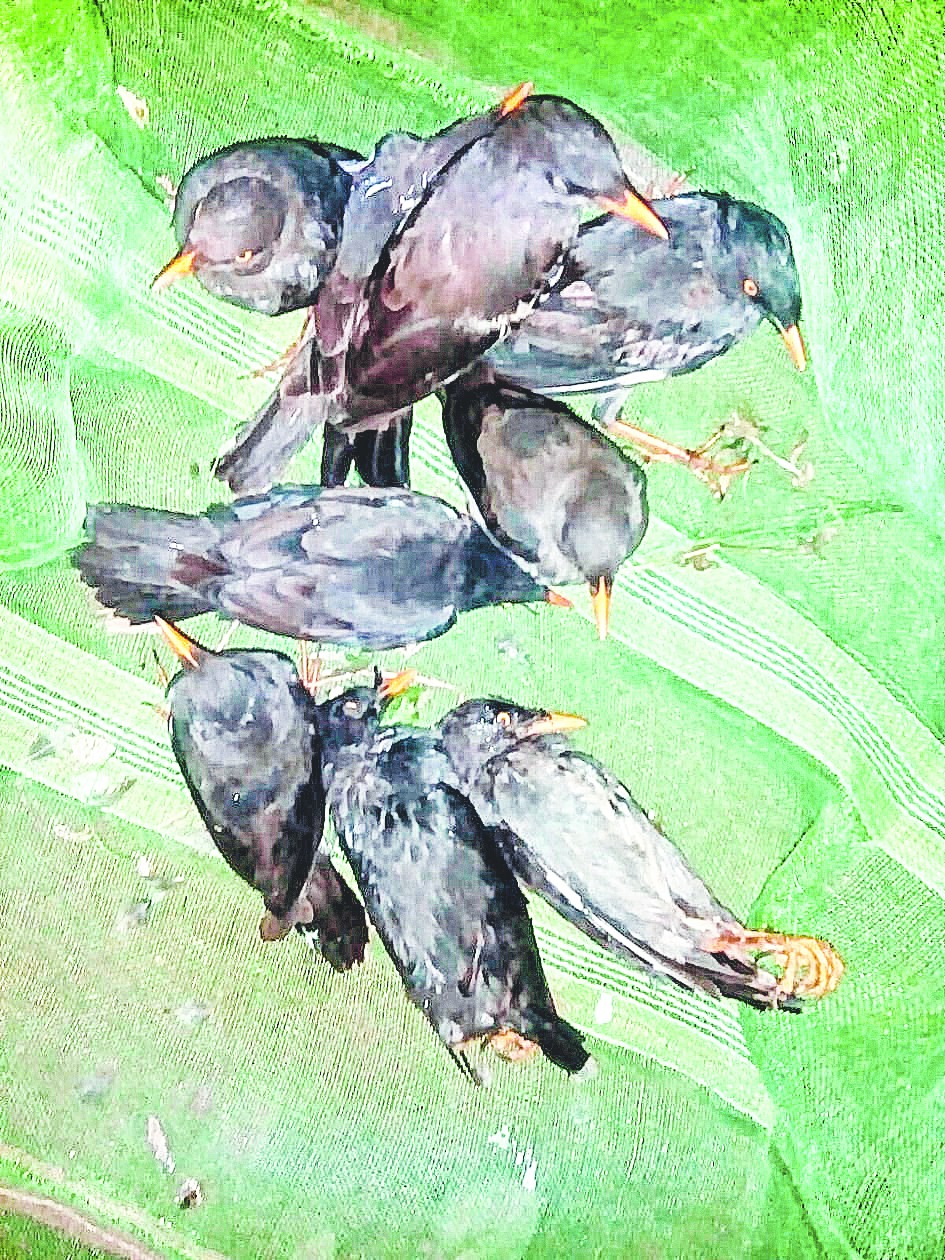
Jorhat, Sept. 9: The forest department has registered a case against Chandmari tea estate under Makum police station in Upper Assam's Tinsukia district today, in connection with the death of a large number of birds, allegedly after consuming insecticide-laced dead insects in the garden.
N.K. Dhar, division forest officer (wildlife) of Tinsukia, told The Telegraph over phone that carcasses of 20 birds, mostly common mynahs, were recovered from the Tarajan division of the garden yesterday.
"We have also rescued 50 birds which were in a semi-conscious state. These birds are undergoing treatment at the wildlife rescue centre in Saikhowa," he said.
The forest official said the post mortem conducted on the carcasses has confirmed that the birds died because of consuming toxic compounds. "We have sent the carcasses for forensic examination to ascertain the particular toxic element and the quantity consumed," he said.
The forest official said there is a permissible limit for tea gardens regarding the use of insecticides and the authorities of the garden probably applied an overdose of insecticides on the tea bushes in the particular area.
"A large number of insects died after the application of chemicals in the particular division of the garden and after consuming these insects, the birds also died," he said.
Samsul Ali, a veterinarian who conducted the post mortem on the carcasses, said there was clear evidence of the birds dying after consuming toxic elements. "It could be ascertained only after the forensic test," he said.
He said most of the birds rescued yesterday have recovered and were subsequently released. "Twelve birds are still being treated at the rescue centre," he said.
An official at the tea estate said garden authorities always use chemicals according to the norms of the Tea Board of India and it was unfortunate that such an incident took place.
Gunadhar Konwar, director of NGO Evergreen Earth, said the insecticides were applied on the tea bushes on Monday evening and the birds started dying yesterday morning.
"Only half of the actual number of carcasses was recovered by the forest department from the site. The garden authorities removed a large number of carcasses early in the morning before the forest department personnel arrived at the location," he said.
He alleged that garden authorities sprayed water on the tea bushes soon after to wash away the chemicals from the tea bushes or to reduce the effect.
Konwar said poultry have also been affected in nearby villages. "People of Tarajan village, which is located nearby, have complained of hens and ducks falling sick since yesterday. These birds may have also consumed a few insects laced with insecticides," he said.










